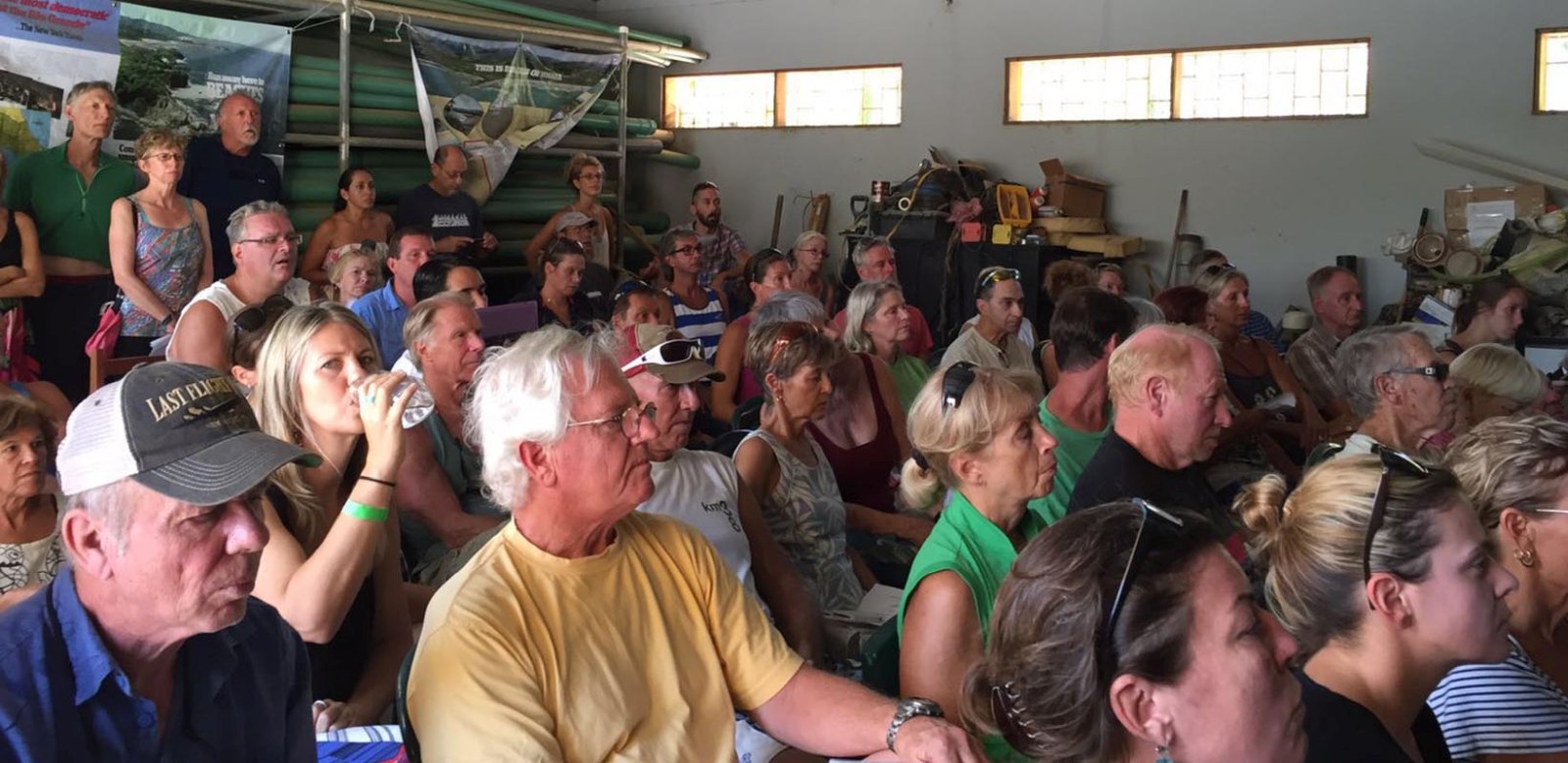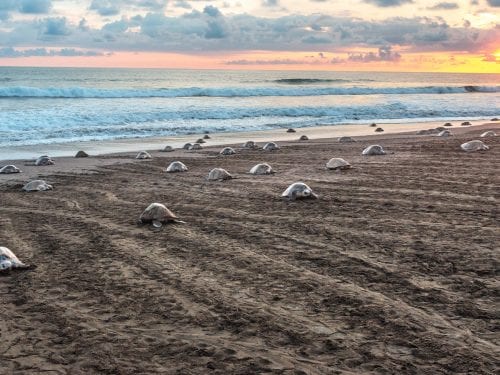
With record attendance – over 70 members- stimulated by water taps that now run dry half the time, Playas de Nosara ASADA´s water system users chose a new water board at their annual meeting Feb. 24.
The new board was elected to two year terms, bringing in some fresh faces and a lot of expressions of commitment to long range planning.
Members rejected a proposal by Alvin Rosenbaum and Linda Tarlow that would have required the ASADA board to create a special committee to address issues of conflict of interest by Board members as well as to create a five year strategic plan for water control.
While the resolution did not call for a moratorium on new water permits to address the current imbalance between supply and demand, Tarlow spoke forcefully about what she described as many Board members´ self-interest toward development.
Rosenbaum argued that “there is plenty of law that serves a moratorium” and that other ASADAs in Costa Rica have denied water permits when they have been unable to meet existing demand.
However, ASADA attorney Andres Gonzalez explained that such legal authority is based on a formula that measures typical water usage for a Costa Rican resident, and the water usage in this ASADA is a multiple of that amount. The motion gained about 30 votes, with more than 40 against.
The assembly did vote to increase the so-called voluntary assessment, after former ASADA member Bobbi Johnson said that it used to be higher.
The voluntary assessment, which approximately 87% of members pay, is the difference between what the monthly water rate was in 2009, and the rate authorized by AyA for all the ASADAs in Costa Rica.
Read: Newly Imposed Water Fees Affect Nosara Populace
Lily Adams was elected President, Carl Wells was elected Vice President, and Olivier Von der Weid was elected Treasurer in uncontested votes, having served respectively as Fiscal, Vocal and Vocal.
The post of Secretary was hotly contested between Jeffrey Grosshandler, owner of the Remax real estate agency, and Bruce Borstein, with a career in strategic planning, who advocated a moratorium and pitched the contest as a philosophical choice on future growth. Grosshandler won, 54 to 47.
Newcomers Denise Cobert and Nick Mcalpin won seats as Vocals, as did John Ermatinger who is currently Treasurer. Merry Cavanaugh was elected Fiscal. Not making the cut was Stephen Wilson, who offered his background in geology and geophysic
Challenges facing the new Board
Outgoing President Chiqui Yaniz said, “I´m glad to see so many people here, this is beautiful. When you don´t have any water, you show up.”
Outgoing Vice President Peter Burke said that even though the system is out of water and shut down by 5 pm typically, the water tanks are not fully refilled by the time water is turned on again in the morning.
Oliver Von der Weid said that an engineer´s study indicated that all of the ASADA´s wells, under theoretical ideal conditions, could produce 30 liters per second of water, but currently are only producing 11.8 liters. That is compared to current demand of 15 liters per second. The newest well should bring that to 13, and a planned additional well could further close the gap, he said.
He said there are about 640 water meters and there have been 60 new projects in the last two years, a five percent annual increase, but water demand has increased by 35% a year for those two years. “The biggest challenge is trying to see how we can lower our water consumption,” Von der Weid said.
Also, more wells are financed by the impact fees from new projects, which are required to do studies, obtain government approval, and pay for any impact on the water system.
Impact fees of $150,000 were paid by new projects in the past two years.
Von der Weid said a new well was recently dug near the Wanderlust real estate office in Guiones Beach but is not yet in production.
The next new well is planned in Section EE.







Comments